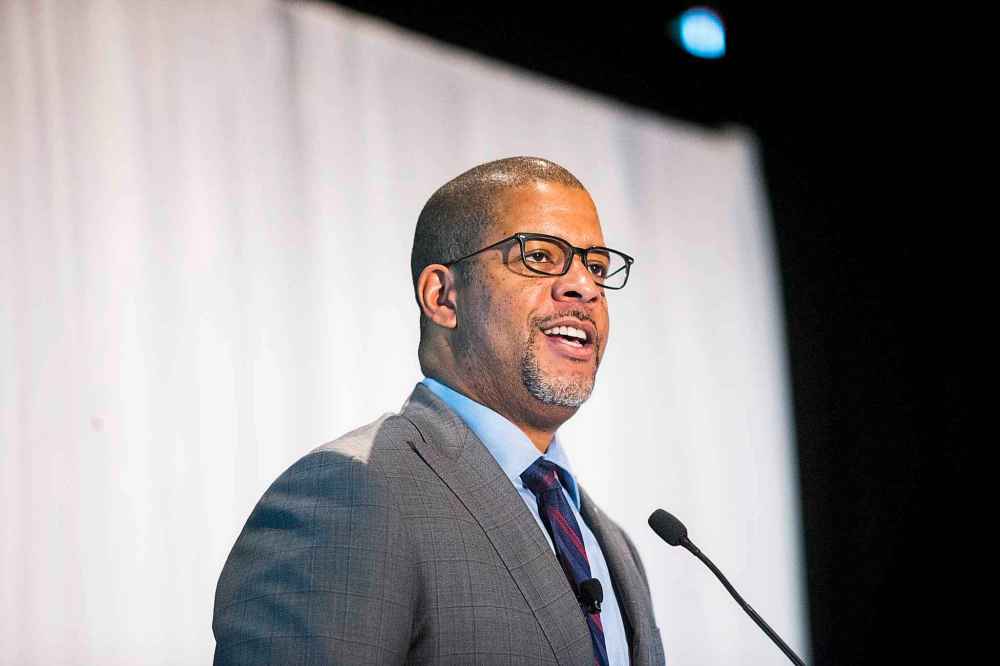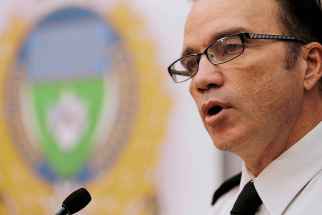Lyft renews push for ride-hailing regulation changes in Manitoba
Read this article for free:
or
Already have an account? Log in here »
To continue reading, please subscribe:
Monthly Digital Subscription
$0 for the first 4 weeks*
- Enjoy unlimited reading on winnipegfreepress.com
- Read the E-Edition, our digital replica newspaper
- Access News Break, our award-winning app
- Play interactive puzzles
*No charge for 4 weeks then price increases to the regular rate of $19.00 plus GST every four weeks. Offer available to new and qualified returning subscribers only. Cancel any time.
Monthly Digital Subscription
$4.75/week*
- Enjoy unlimited reading on winnipegfreepress.com
- Read the E-Edition, our digital replica newspaper
- Access News Break, our award-winning app
- Play interactive puzzles
*Billed as $19 plus GST every four weeks. Cancel any time.
To continue reading, please subscribe:
Add Free Press access to your Brandon Sun subscription for only an additional
$1 for the first 4 weeks*
*Your next subscription payment will increase by $1.00 and you will be charged $16.99 plus GST for four weeks. After four weeks, your payment will increase to $23.99 plus GST every four weeks.
Read unlimited articles for free today:
or
Already have an account? Log in here »
Hey there, time traveller!
This article was published 19/11/2018 (2578 days ago), so information in it may no longer be current.
Lyft, the number two name in the ride-hailing market, is determined to get Manitoba Public Insurance to loosen the current insurance regulations so that it can start operating in Winnipeg.
And as part of its campaign to do so, it held a charm-offensive of sorts on Monday.
The company’s vice-president of public policy, Joseph Okpaku, told a large Winnipeg Chamber of Commerce lunch crowd on Monday that the company appreciated the chamber’s support and sought the audience’s support as well.

Okpaku said the company believes its presence in a market can provide both a social and economic boost to the respective region.
Lyft just completed a study on the potential economic impact Lyft could have if it operated in Winnipeg and Okpaku said it would mean: an additional $8.8 million spent annually by Lyft passengers (previous Lyft research found that 66 per cent of Lyft passengers spend more when they are out); $5.8 million in annual driver earnings; and the value of time saved by Lyft passenger just through efficiency gains would equal about $6.4 million.
Lyft and Uber have delayed entry into the Manitoba market because they object to MPI’s insurance structure that requires ride-hailing drivers to commit to specific bands of time for which they would be covered under the ride-hailing insurance coverage.
Okpaku said, “In Manitoba, the only barrier is insurance. The way the insurance is set up tends to ignore the fact that the biggest value proposition for Lyft drivers is flexibility. That is the foundation upon which the Lyft platform rests and without that it does not work.”
He said Lyft is continuing to work with MPI to get that solved, but he said, “Things are moving somewhat slowly with MPI.”
Meanwhile, there are a couple of smaller players who are already up and running and complying with MPI’s premium schedule.
John Morris, a spokesman for TappCar, an Edmonton-based operation, said his company now has 500 drivers on the road in Winnipeg and the service has been well received here.
“TappCar has been delivering first rate ride share service to Winnipeg since March of this year, when the bylaws came into effect,” he said. “And we have been able to operate effectively under the current MPI rules.”
Brian Smiley, a spokesman for MPI agreed, saying the the insurance framework for vehicle-for-hire services seems to work fine for several local and Canadian ride-hailing service providers.
“As 20 per cent more than regular passenger vehicle insurance, the cost of insurance for passenger vehicle-for-hire operators is equivalent to or lower than the insurance premiums charged in other jurisdictions,” he said. “This provides operators with complete flexibility to decide when and how often they want to provide vehicle-for-hire services.”
Okpaku said it took a while for auto insurance regulators in the U.S. to allow the service to operate and Lyft is now operating in 49 of 50 states. The Greater Toronto Area is the only Canadian market it operates in.
On Monday, the B.C. government introduced legislation that would allow ride-hailing services to operate by next fall. The legislation includes a new kind of insurance developed by the ICBC (Insurance Corporation of British Columbia) for ride-hailing providers.
Also on Monday, China’s largest ride-hailing firm launched a research facility in Toronto which will focus on research into intelligent driving and artificial intelligence.
It will be led by Jun Yu, who the company describes as a pioneer of China’s consumer app industry and who has been responsible for creating many of China’s leading internet products.
The company, which acquired Uber China, offers app-based transportation options for 550 million users, including taxi, bus, bike-sharing, car-sharing and foot delivery. More than 31 million driver use its platform.
with files from Candian Press
martin.cash@freepress.mb.ca

Martin Cash has been writing a column and business news at the Free Press since 1989. Over those years he’s written through a number of business cycles and the rise and fall (and rise) in fortunes of many local businesses.
Our newsroom depends on a growing audience of readers to power our journalism. If you are not a paid reader, please consider becoming a subscriber.
Our newsroom depends on its audience of readers to power our journalism. Thank you for your support.








